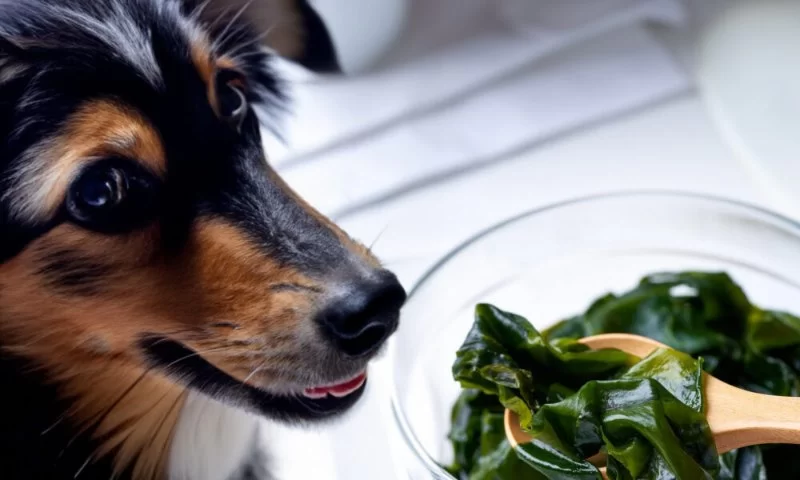- What-Is-Seaweed-and-Why-Dogs-Might-Be-Interested
- Health-Benefits-of-Seaweed-for-Dogs
- Potential-Risks-and-Dangers-of-Feeding-Seaweed
- Safe-Ways-to-Introduce-Seaweed-into-Your-Dog’s-Diet
- A-Real-Case-of-Dogs-Eating-Seaweed
- Expert-Advice-on-Dogs-and-Seaweed
- Where-to-Get-Help-and-Quality-Products
What Is Seaweed and Why Dogs Might Be Interested
Seaweed is a nutrient-rich marine plant that has been consumed by humans for centuries. But many pet owners wonder: can dogs eat seaweed too? Dogs are naturally curious, especially at the beach, and may nibble on dried seaweed washed ashore. While it looks harmless, it’s important to understand the differences between safe, edible seaweed and the dried, potentially harmful forms found in nature.
Health Benefits of Seaweed for Dogs
When properly prepared, seaweed can be a healthy supplement for dogs. It contains essential vitamins like A, B, C, and E, as well as minerals such as iron, iodine, and magnesium. These nutrients support your dog’s immune system, improve coat health, and aid in digestion. In fact, some high-quality dog foods already incorporate seaweed powder as a natural additive for these benefits. For pet parents looking to boost their dog’s nutrition, seaweed can be a valuable option when used correctly.
Potential Risks and Dangers of Feeding Seaweed
Despite its benefits, seaweed also carries risks. Wild seaweed on beaches may contain harmful bacteria, pollutants, or sharp edges that could damage your dog’s digestive tract. Another danger is excessive iodine, which can disrupt thyroid function if fed in large amounts. Some cases have been reported of dogs experiencing blockages after eating large chunks of dried seaweed. This is why supervision and moderation are essential when introducing any new food to your pet’s diet.
Safe Ways to Introduce Seaweed into Your Dog’s Diet
If you’re considering adding seaweed to your dog’s meals, stick to controlled, store-bought options designed for pets. Small amounts of seaweed powder sprinkled over food is often the safest method. Always start with a tiny serving and monitor your dog for any signs of allergies or digestive upset. Just like with any treat, moderation is key. Consulting with a trusted veterinary service before making dietary changes ensures your pet’s safety and well-being.
A Real Case of Dogs Eating Seaweed
One dog owner in Florida shared how her Labrador, Daisy, kept eating dried seaweed off the beach. At first, it seemed harmless, but Daisy soon developed stomach pains and vomiting. After rushing to the vet, it turned out she had a partial blockage from hardened seaweed. Thankfully, Daisy recovered, but her story highlights why pet owners should take seaweed consumption seriously. Real cases like this remind us that even natural foods can pose risks when not handled correctly.
Expert Advice on Dogs and Seaweed
Veterinarians generally agree that small amounts of prepared seaweed can be safe for dogs. However, they caution against letting pets freely eat wild seaweed. The safest approach is to consult a professional before introducing seaweed into your dog’s diet. Experts emphasize that each dog is unique—what’s safe for one may not be safe for another. Personalized advice can make the difference between a healthy snack and a dangerous mistake.
Where to Get Help and Quality Products
For pet parents who want to explore safe dietary supplements, including seaweed-based options, visiting Hidden Brook Veterinary is a great choice. Not only can you find reliable products, but you’ll also have access to professional guidance on your dog’s specific nutritional needs. Ensuring your dog’s diet is both safe and beneficial is one of the most important steps in responsible pet care.












